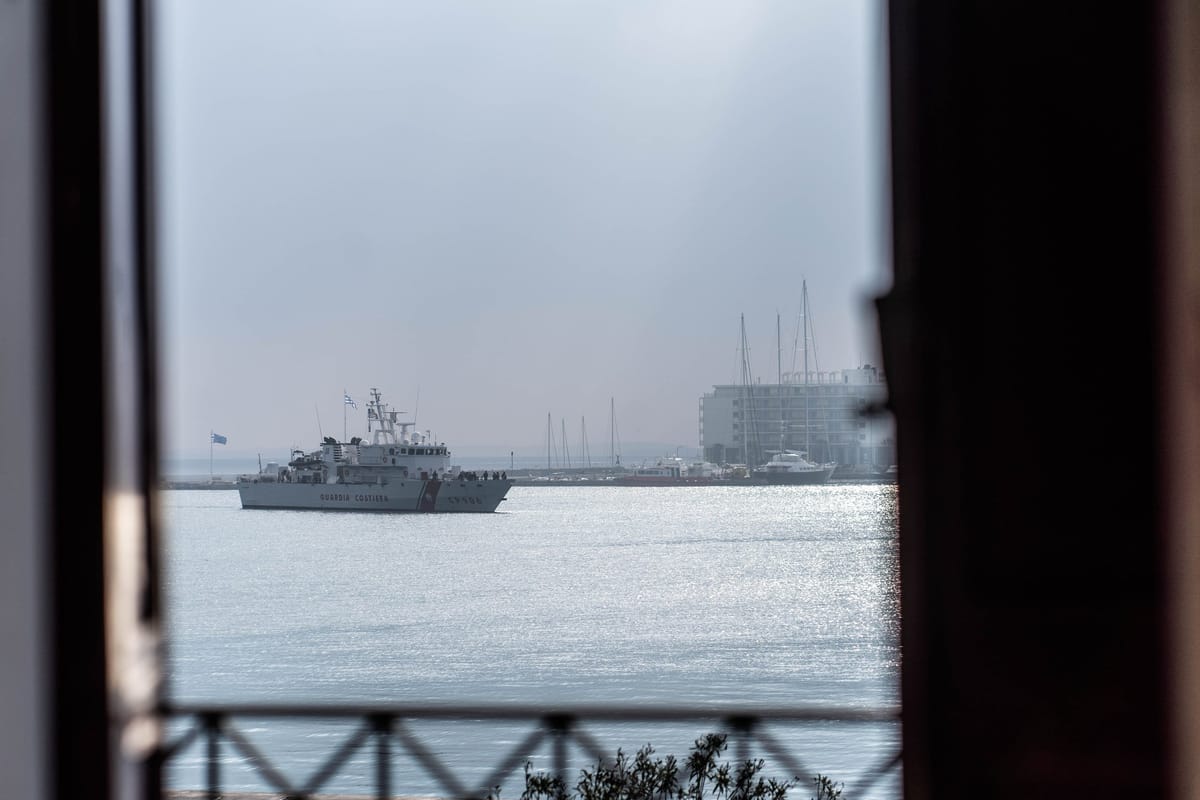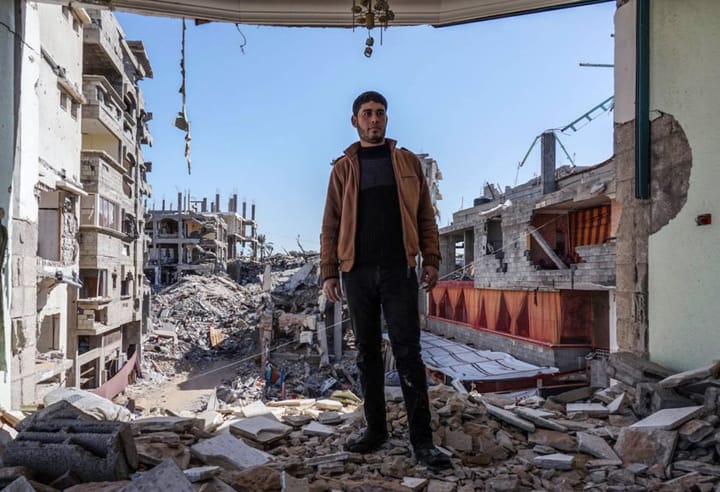Border news from around the world.
Welcome to Long Road Magazine's monthly newsletter, where we share some of the latest news from and about borders and borderlands around the world. As we enter 2024, Israel’s war in the Gaza Strip rages on, migration remains a source of rightwing ire in the United States, and allegations of pushbacks at the edge of Europe continue to pile up.
Gaza ‘Uninhabitable’
As Israel’s war on the besieged Gaza Strip passes the three-month mark, the coastal enclave has become “uninhabitable,” according to Martin Griffiths, the United Nations’ humanitarian chief. Since a Hamas-led attack on October 7, Israel has launched a bombing campaign and ground invasion that have displaced some eighty-five percent of the Strip’s population, destroyed tens of thousands of buildings, and killed more than 22,000 people. Most Gaza residents are trapped in the Strip because Israel and Egypt impose a blockade on its borders. “People are facing the highest levels of food insecurity ever recorded, [and] famine is around the corner,” Griffiths said.
Irregular Crossings Down in U.S.
In the U.S., where the border has persisted as a key issue since President Joe Biden took office, irregular border crossings are down, according to officials. As the Associated Press reported on January 7, Mexican authorities have ramped up enforcement against undocumented migrants making the dangerous trek to southern U.S. border. In the last ten days of December, Mexican immigration authorities sent at least 22 planes of migrants from the U.S. border region back to southern Mexican cities. North of the U.S.-Mexico border, on January 1, American authorities arrested some 2,500 people for crossing the boundary—a sharp decrease when compared with the 10,000 arrested on several individual days earlier in December.
Number of Displaced People in Sudan Hits 7.3 Million
Torn apart by civil war since April 2023, Sudan has continued to witness mass displacement across the country, according to the United Nations refugee agency (UNHCR). The number of displaced has now reached 7.3 million people. Around half of those displaced are children, UNHCR says, while some 1.4 million people have fled to neighboring countries since fighting first broke out last year. “The total number of people displaced within Sudan has increased by an estimated 500,000 people in one month, mainly due to people newly displaced from Wad Medani and surrounding areas in Aj Jazirah State who sought safety and shelter in other states” since December 15, according to the UNHCR report.
Greece (Again) Accused of Pushbacks
In mid-December, the European Council on Refugees and Exiles (ECRE) released a report that accuses Greece of subjecting refugees and migrants to border violence, violations of their rights, and pushbacks, or extrajudicial expulsions. As ECRE points, routine allegations of such practices have continued even as the number of people reaching Greece has plummeted by some thirty-three percent, according to the Greek migration ministry. Citing the Alarm Phone watchdog, which operates a hotline for refugees and migrants, ECRE pointed to several instances of alleged pushbacks in early December. Pushbacks, which Greece has in the past denied it carries out, have become a de facto policy for several countries on the European Union's external borders.
More Than Half a Year After the Pylos Shipwreck
In mid-December, Long Road Magazine spoke with Bill Van Esveld, the associate director of Human Rights Watch’s children’s right division, about the six months following the deadly shipwreck off the coast of Greece. The Adriana, a fishing trawler that left Libya for Italy in June, sank some 47 nautical miles off the Greek coast, killing hundreds of people. “There’s something that could have been done to get more information about the dead, but it wasn’t,” Van Esveld said. “We interviewed twenty-one survivors and also spoke to another five relatives of people who are presumed lost. Several of them said they approached the Greek authorities, or tried to, because they wanted to share information about people they knew who were also on the boat, but the authorities weren’t interested in taking that information.”
Read the full interview at Long Road.
For Gaza Journalists, No Time to Mourn
For journalists covering the ongoing war in Gaza, there is no time to mourn. “We are victims, directly on live television,” said Salman al-Bashir, a journalist for the Palestinian Authority’s TV channel, while reporting live in front of the hospital where his colleague Mohammed Abu Hatab was declared dead on November 2. He threw his “PRESS” labeled protective jacket and helmet on the ground while still in tears, explaining: “They are merely slogans that we wear, and that is all. They don’t protect journalists at all.”
Read the full piece, published courtesy of iMEdD, at Long Road.
Subscribe to Long Road Magazine to receive this monthly newsletter in your inbox, or donate here:



